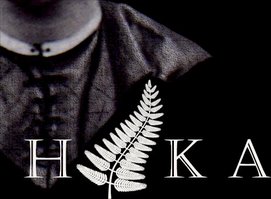 ANZAC Day:
ANZAC Day: This year by coincidence ANZAC Day fell on Easter Monday. It was wet and quite unpleasant but we went with Joe Sarah and the boys plus Mauritz their German student to the 9.30 service. Because of the weather the turnout was low.
Afterwards we went to the Town Hall and had a cup of tea and cakes (getting some of our Rates money back!).
Christine hunted up her father and her Grandfather's medals which she tidied up and Kipp wore them. I see that I am eligible for a service medal having done 3 months CMT (Compulsory Military Training) back in 1962 ( I was at Waiouru when the Cuban Missile Crisis was on) then a further 3 years in the Reserve which meant we went away for 2 weeks every year. I thought it was a waste of money although it probably straightened a few guys out.
People like my better half often ask do I remember my number. Speaking to a friend who also did it he, like me, can rattle his number off with no problem - 362115. Easy.
Looking at the Defence Forces site I see I actually did what was termed National Service - those who did it back in the 1950's were the CMT people. Also I read that I can't apply yet as I am not quite old enough, also I see it started in May 1962 so I was in the Second Intake and finished 10 years later thanks to Norm Kirk's Labour Government who thought it a waste of time and money.
Medals for CMT - this seems a waste of money to me. However, I will think about applying for Kipp and Monty's sake - for what it is worth. We shall see.
In Flanders fields - a poem.
The red or Flanders poppy has been linked with battlefield deaths since the time of the Great War (1914–18). The plant was one of the first to grow and bloom in the mud and soil of Flanders. The connection was made, most famously, by Lieutenant Colonel John McCrae in his poem 'In Flanders fields'.
In Flanders fields the poppies blow
Between the crosses row on row,
That mark our place; and in the sky
The larks, still bravely singing, fly
Scarce heard amid the guns below.We are the Dead. Short days ago
We lived, felt dawn, saw sunset glow,
Loved and were loved, and now we lie
In Flanders fields.Take up our quarrel with the foe:
To you from failing hands we throw
The torch; be yours to hold it high.
If ye break faith with us who die
We shall not sleep, though poppies grow
In Flanders fields.
McCrae was a Canadian medical officer who, in May 1915, had conducted the funeral service of a friend, Lieutenant Alexis Helmer, who died in the Second Battle of Ypres (called Wipers by the English). Distressed at the death and suffering around him, McCrae scribbled the verse in his notebook. In a cemetery nearby, red poppies blew gently in the breeze – a symbol of regeneration and growth in a landscape of blood and destruction.
McCrae threw away the poem, but a fellow officer rescued it and sent it on to the English magazine Punch; 'In Flanders fields' was published on 8 December 1915. Three years later, on 28 January 1918, McCrae was dead.
As he lay dying, he is reported to have said ‘Tell them this, if ye break faith with us who die, we shall not sleep.’





